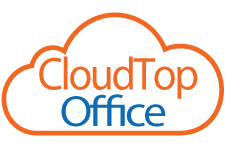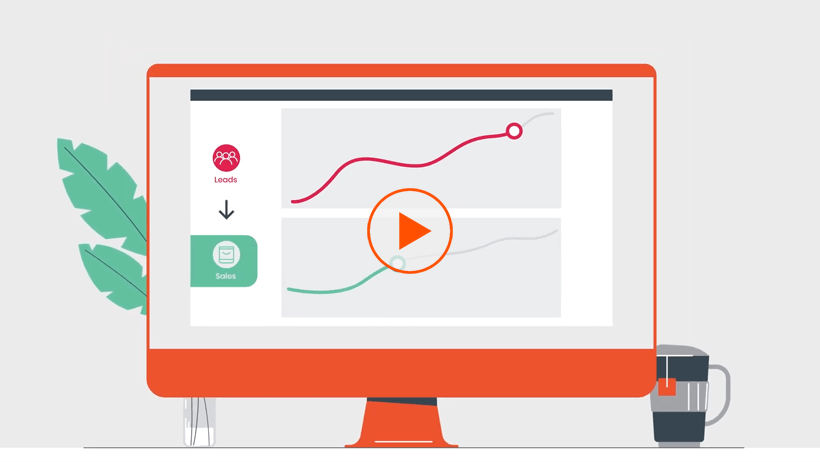Marketing automation is defined as the process of using software to automate marketing campaigns and activities throughout the entire buyer’s journey — from initial customer interactions through to post-sales support.
It helps companies set the most effective processes for each stage of the sales funnel based on data about a lead and how they interact with the company.
Before we dive into the rest of the article, watch the video below for an easy to understand overview of what marketing automation is and how it can help your sales processes.
Check out this brief video to learn more
What can marketing automation do?
Marketing automation tools help you streamline the entire marketing process by automating repetitive tasks. Actions are taken automatically at the times when they are most effective. This increases the chances of your business generating new leads, making sales, and increasing your marketing ROI – all while freeing up your marketing team to focus on other tasks.
Marketing automation mostly focuses on the following three sections:
Personalization and targeted email marketing
Marketing automation software provides you with customer data that lets you target each customer with the content most relevant to them based on who they are and how they interact with your company. This ensures each lead is always sent the content that will help them overcome their specific barriers to purchase—no more sending out ineffective mass email campaigns to your entire list.
Here’s an example of this in practice.
- A prospect visits one of your landing pages and fills out a form to download your eBook.
- You automatically send them the eBook in an email.
- The prospect clicks on the link to download the eBook.
- They then click on a link to your pricing page from within the eBook—but they don’t take action.
- You automatically send them an email asking if they’d like to set up a call with a sales rep to discuss their options.
- They fill in an online form with a time they are happy to speak.
- A sales rep at your company is notified and calls them at the allotted time.
Identify strong leads
Marketing automation software lets marketing teams score leads based on the likelihood of them buying your product. You set points for each action a lead takes and when the lead reaches a predefined point total, you pass the lead on to your sales team to follow up.
For example, if a lead has opened all your emails, signed up for a webinar, and visited the pricing page of your website, this is a warm lead. Someone who only opens your email sporadically and never clicks through to your website is cold.
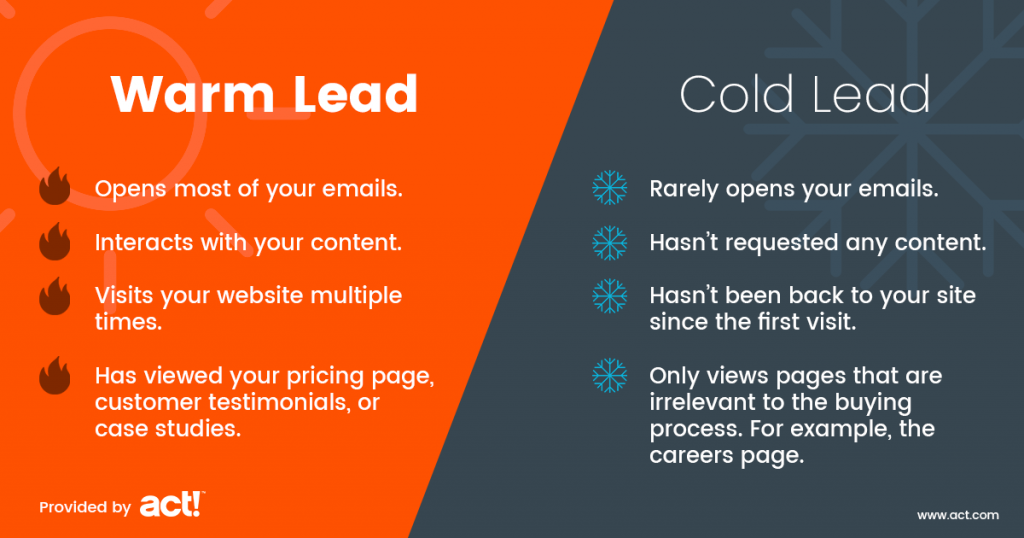
Segment your customer base
Marketing automation platforms help you segment your customer base, allowing you to target different groups with the most relevant marketing strategy. By segmenting customers based on their location, the pages they visit, or their buying preferences you can create a better customer experience and stronger customer relationships.
For example, an accountancy firm that offers services in tax, year-end accounts, and payroll could segment its leads based on the pages on their website that leads visit. If they spend a lot of time on the payroll page, target them with the most effective strategy for people interested in payroll.
Marketing automation and customer relationship management software in one: Try Act! Marketing Automation free for 14 days to explore how marketing automation works in practice.
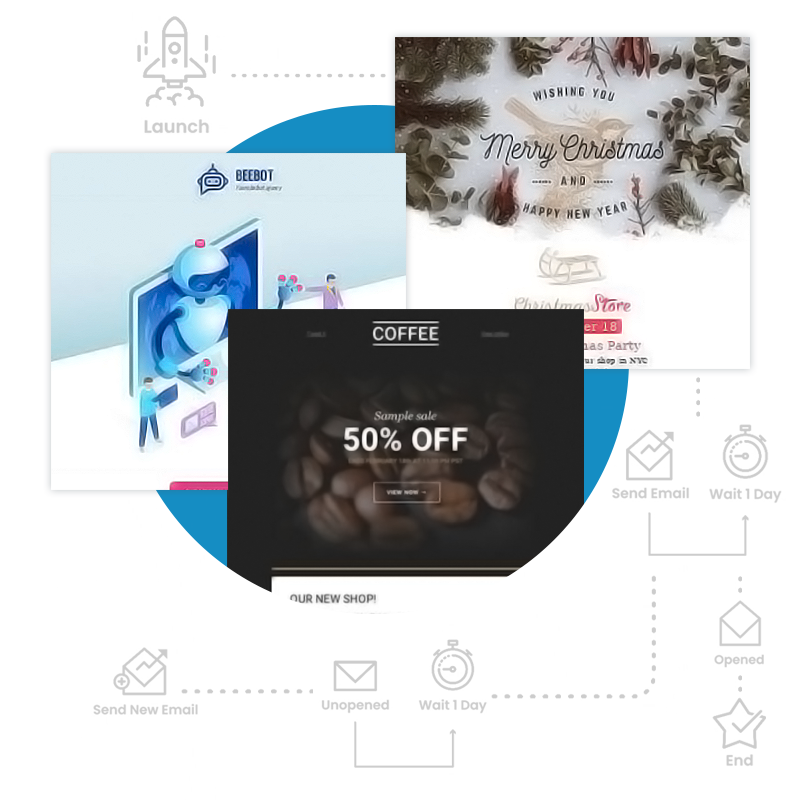
What are the benefits of marketing automation?
Marketing automation benefits marketing departments in several ways. Here are some of them.
Stronger lead generation
Marketing automation platforms help you build stronger leads and improve your lead management in two ways. First, by using lead scoring techniques you can easily tell apart warm leads from cold ones and only send your sales team qualified leads.
Second, lead tracking techniques provide you with a fuller picture of what your lead wants and the challenges they need to overcome. When the sales team receives a lead, they know where the lead is from, the content they have downloaded, and the emails they have interacted with.
Better timing
Timing is crucial in sales. If you don’t automate processes, you can miss out on the moments that are most important in the sales cycle.
Think about a coffee shop owner considering a new PoS system. They arrive on your website and download a case study, but they are still unsure about what exactly your software offers. Because of this, they move onto a competitor and it’s too late by the time your sales team contacts them. Marketing automation takes the next step in the process automatically. For example, by sending further information that can help with the purchasing decision or asking them to set up a call with a sales rep.
Take the optimal step every time
Marketing automation ensures the most effective step is taken at each stage of the marketing funnel. Your team can use data on past transactions to see how potential customers interact with your company before making a sale and send them the right content at the right time. They can use this information to build more effective processes and increase sales.
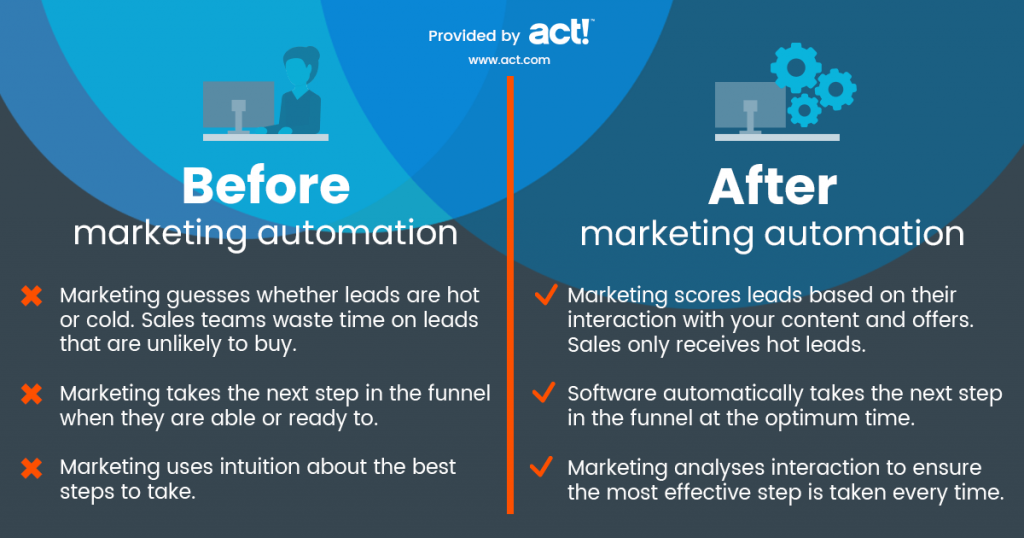
Who uses marketing automation?
Marketing automation is used by companies of all sizes across a wide variety of sectors. Act! customers include those in financial services, health, real estate, pharmaceuticals, and more. Many companies that use marketing automation have a sales process that involves some or all of the following:
- An inbound marketing process.
- Email marketing.
- Social media.
- Materials to use in the sales process or if you are willing to create them.
- A sales process that takes place online.
You can read more about the type of businesses that use marketing automation and how they streamline their marketing efforts in our testimonials section.
Businesses that implement marketing automation experience an average of a 451% increase in qualified leads1
How do you succeed with marketing automation?
How you use marketing automation will depend on your sales process. Companies with a long sales cycle with multiple interactions generally benefit most from marketing automation as they can automate each part of the complex sales process. Although, it can also work with shorter sales cycles. For example, sending customers email reminders when they leave items in their basket without checking out. The important thing is that you understand how your sales process pushes people from being leads to customers.
Know your customers
Marketing automation revolves around tailoring your marketing funnel based on how your customers interact with your company. To do this effectively, you need a good understanding of who your customers are and what they want from your business, and what touchpoints they have with your product or service.
Have a defined strategy
Companies that succeed with marketing automation know the steps customers want to take at each stage of the funnel and can direct customers to these steps. Ensure you know what customers want before implementing your own marketing automation strategy.
Create the required materials
Marketing automation requires you to have materials your customers can interact with. For example, blog posts, videos, and eBooks. If you already have this material, you can use it in your marketing automation efforts. If not, you’ll need to create some content first.
Keep everyone in the loop
Successful marketing automation strategies receive input from teams throughout your organization. Sales teams should communicate to marketing about the type of lead that converts so marketing can use this in their lead scoring system. Meanwhile, customer support could provide marketing with feedback about the type of challenges customers have.
You aren’t finished once you implement your marketing strategy. You now need to analyze and test your strategy to ensure each part of it works at an optimal level. Use data on metrics like click-through rates, conversions, time on page, and open rates to discover black holes where you lose more customers than you should. Use A/B testing to discover more effective methods.
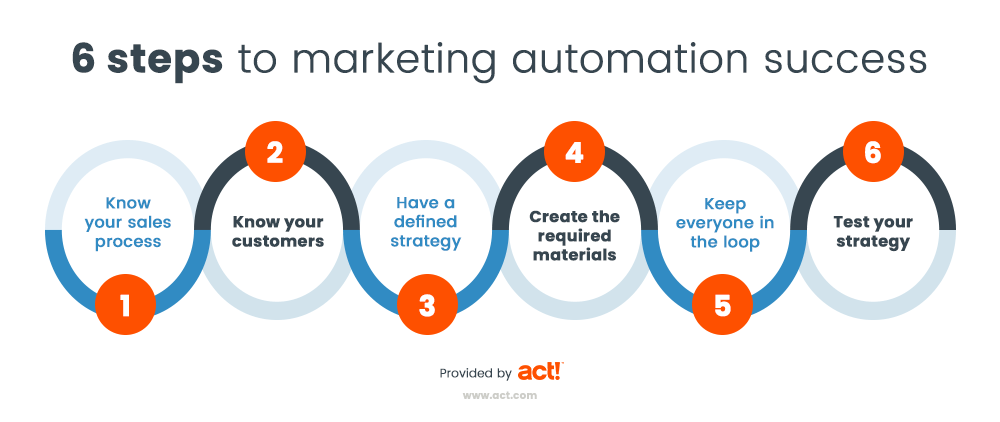
Still unsure what marketing automation is?
Then download our definitive guide to marketing automation eBook where we go into further detail on all the points on this page.
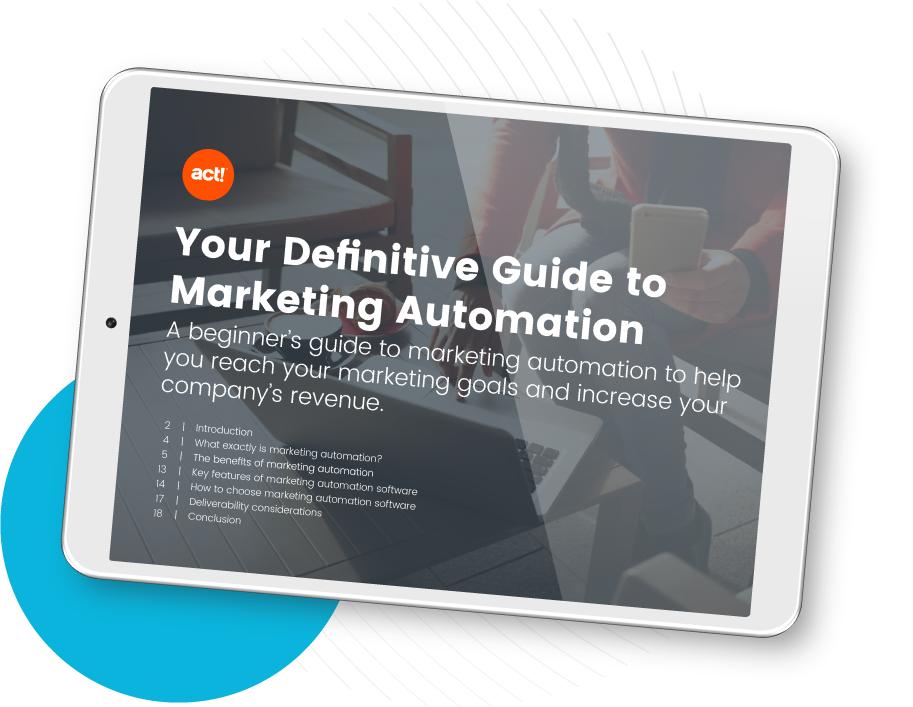
How do I choose the right marketing automation solution for my business?
As with any investment, you need to ensure the marketing automation tool you choose is the right one for your business. There are many popular marketing automation solutions out there and you’ve probably heard of Salesforce, HubSpot, Mailchimp, or Act!. Here are some things to look out for to make your decision easier:
Features
It is important that the marketing automation platform you choose has the features you want. Consider why you want to use marketing automation and ensure that the solution you pick supports this goal.
Integrations
It is essential that marketing automation software integrates with the tools you already use. Most marketing automation platforms support a wide variety of integrations but you should confirm this before committing.
Training
Marketing automation is straightforward once you get the hang of it. Nonetheless, there is a learning curve and the best marketing automation solutions will do all they can to help you and your team get the most out of the software. This could be in the form of an in-depth knowledge base, video lessons, or even in-person training.
Customer Support
Linked to training is the customer support the solution offers. Marketing automation tools with extensive customer support options will ensure you aren’t left wanting should something go wrong.
Scalability
This point is of specific importance for small businesses. If you’re planning to grow your company, choose a marketing automation solution that can keep up with your growth. Most tools will enable you to move to a different plan as you get more customers.
Cost
Cost is the final deciding factor. Can you afford the feature set you are after? Or would you be better off going for a more affordable solution? Be aware of hidden fees or opening offers that see the price you pay increase significantly once you are fully committed to the company’s ecosystem.
Need more information? Check out this article on how to choose the best marketing automation software for your business.
Wondering if marketing automation is right for you?
Check if your business is ready for marketing automation with this free worksheet.
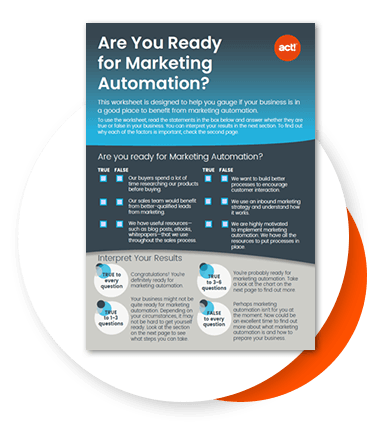
Wrapping up
Here’s a quick summary of what you should know about marketing automation:
- What is marketing automation? Marketing automation is the process of using software to automate marketing tasks throughout the customer journey.
- What can marketing automation do? Marketing automation helps with lead nurturing, segmentation, and lead scoring. This ensures businesses take the most effective steps to push customers down the buying funnel.
- Benefits of marketing automation: Marketing automation helps businesses create and implement the most effective marketing strategy possible. This can lead to more sales and allows those in marketing to focus on the bigger picture.
- Who uses marketing automation? Companies of all sizes and industries can use marketing automation, including both B2B and B2C businesses.
- How to succeed with marketing automation? To succeed at marketing automation you should have a clear strategy and excellent knowledge of your product and customers. You should continually test and refine your processes.
- How do I choose the right marketing automation solution? Consider the features you want from a marketing automation solution, as well as where you see your business in the future. Then, pick a marketing automation solution that fits your budget.
